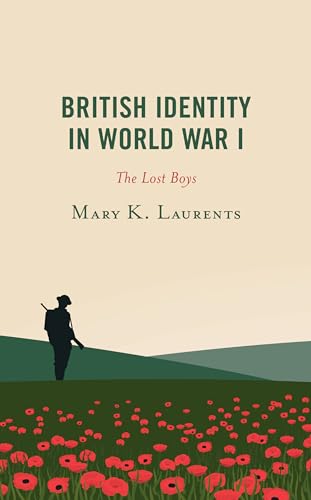
British Identity in World War I
by Mary K. Laurents
"The Lost Boys"
Popularity
0 / 5
* A book's popularity is determined by how it compares to all other books on this website.
Where to buy?
Buy from Amazon* If you buy this book through the link above, we may receive a small commission at no extra cost to you.
British Identity in World War I by Mary K. Laurents
Details
War:
World War I
Perspective:
Civilian
True Story:
Yes
Biography:
No
Region:
Europe
Page Count:
250
Published Date:
2020
ISBN13:
9781793617422
Description
Brief Summary
British Identity in World War I by Mary K. Laurents is a profound examination of the transformative effects of World War I on upper-class British youth. Delving into historical narratives and personal accounts, Laurents explores how the war reshaped their perception of self and national identity. The book thoroughly investigates the challenges faced by these young individuals, navigating both the physical and psychological terrains of wartime Britain.
Main Themes and Topics
Central to the book is the theme of identity, specifically how war deeply influences personal and collective identities. Laurents focuses on the youth of Britain's upper classes, many of whom were initially eager to serve and viewed the war as a journey of personal growth and national duty. Through their experiences, Laurents discusses themes of camaraderie, loss, and the eventual disillusionment that many felt as the war dragged on.
Another significant topic in the book is the socio-economic divide and how it manifested during the war. Laurents critically examines the juxtaposition between the romanticized view of war held by the upper classes and the stark realities faced on the battlefield. She notes the lasting impact on British society, as attitudes shifted and the rigid class structures began to show signs of change.
Writing Style and Tone
Mary K. Laurents adopts a scholarly yet accessible writing style that seamlessly combines academic research with engaging narrative storytelling. Her tone is both empathetic and analytical, providing a balanced perspective that respects the gravity of the historical events while making the complex themes understandable to a broad audience. Laurents' meticulous attention to detail highlights her thorough research, yet her prose remains vivid and compelling throughout.
Criticism
Despite the book's strengths, some readers may find Laurents' focus on the upper classes somewhat limiting. Critics argue that while the book offers deep insight into this specific demographic, it could benefit from a more inclusive exploration of the broader spectrum of British society during the war. This narrow lens, while providing depth, results in a perspective that does not fully encompass the diverse experiences of all British youth affected by World War I.









